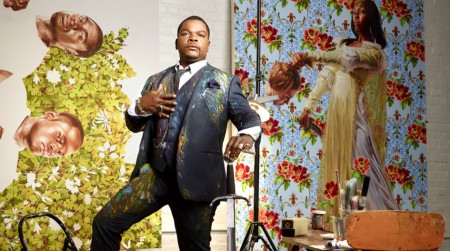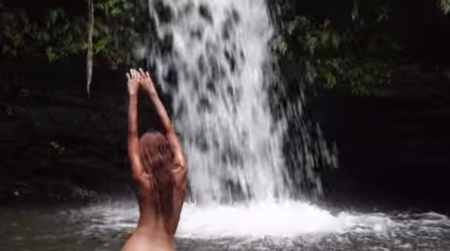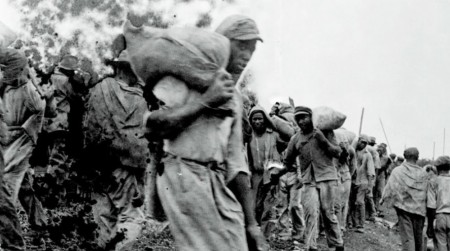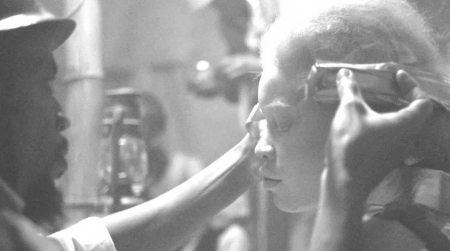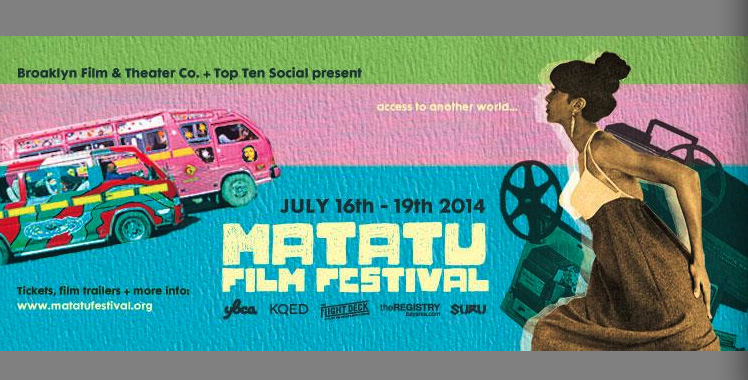
Matatu Film Festival Comes to Oakland
A few weeks ago I ran into Michael Orange at a cafe and we caught up on projects we’re working on. He mentioned Matatu, and I knew there was a reason our paths aligned that day. Screening films that explore and showcase fringe identities, people of color, and often forgotten stories, Matatu is a curation of the vibrancy of life as much as it is a celebration of art. After much critical acclaim at Tribeca, Mala Mala is coming to Oakland- a story of the trans community in Puerto Rico. You’ll have a chance to see the imitable Kehinde Wiley’s short doc, a film about a Zambian space program- The Afronauts (I’ve been itching to see since Cristina De Middel’s photo project), and much more. To get a feel for what it took to build this festival and it’s significance in Oakland, read the interview with Michael and check out the film guide.
Michael: I’ve been in the bay for 11 years now. I suppose I’ve always thrown events. While some folks have been spinning records since they could walk and others have been earning a buck since they could toss a newspaper, I’ve been bringing folk together since I could smile and tell a story.
M: Matatus are what share taxis are called in Kenya, though in the Philippines you’d see the very same solution/expression, only called a jeepney. Music producers and records labels will often supply the most sought after drivers with their newest music, many are offering wifi, and so it’s a often a relished experience, even with the dangers overcrowding presents.
B: What was the selection process like?
M: Every time we put a festival together, we forget how vigorous a process the selection process can be. It should be. We consider ourselves more of a traveling arthouse cinema, and while it might seem like that offers us greater license to present stories which clash, the fabric of stories we propose weaving together becomes all the more compelling – if we get it right. Our team has had our eye on some of the selections since they were conceptualized, and others we learned about from other festivals like TriBeCa, SXSW, and Sundance. Here’s where our mission begins: honest stories about people of color, whether told by us or others, are often labeled and treated as fine art, often limiting their exposure to elite film festival audiences, never seeing the light of day in the very communities the stories oftentime portray and are intended for.. We believe everyone deserves access to all the spectacular stories of the world, and so it is the Matatu Film Festival’s mission to bring some of these stories home, while also reminding people of color and others how much diversity there truly is within us.
M: The primary enhancement to this year’s festival is returning to our roots, not screening in a more traditional theater space, activating a new performance theater for the bulk of the festival. We’re also limiting the audience per film to 65-75 attendees, valuing the honesty and participation smaller audiences make possible, especially for discussions following the films. If you’re like us, you’re tired of stale popcorn, sugary sodas, and the usual Hollywood blockbusters typical of the theater experience, so we’ve added a custom food and beverage program courtesy of our friends at PieTisserie and Miss Ollie’s. Again, we’re an arthouse film and theater company; we know the stories and the way we wish to view them doesn’t appeal to the lowest common denominator, but we believe there are enough of us who value the art of storytelling and don’t believe it to be a spectacle. One last addition we’re perhaps most excited about this year is the film shorts program. Our friends and festival partners at I Hella Love Shorts have been working similarly to get folks excited about film, packing the house for their quarterly screening events. It was important to us to include some of our favorite short stories of the year, which have all played on big screens at big festivals, except for Oya: Rise of the Suporisha, which is our very first premier.
M: Oakland has 400K residents – and four theaters. We can’t nearly begin to scrape the surface of our experience as peoples of color as long as the distributors are in control of our narratives. Our festival marks a rare opprtunity to travel across the world to some of the greatest film festivals, not to mention touching down in some of the most culturally rich hotspots on the planet – all for the cost of a movie ticket. Story presents access to another world, a world we’d like to make even just a touch easier to access.
M: We’re humbled and encouraged by the response; it’s been royal. This year’s festival adds an opening night talk with Fred Blackwell, CEO of the San Francisco Foundation, and his mother Angela Glover Blackwell, Founder/CEO of PolicyLink in a talk about equity and access. We’ve also added an additional day of films this year, and doubled the number of films from six last year to twelve. We’ve also been invited to come aboard a similar festival in Accra, Ghana, the I Luv Africa Film Festival, also in its second year, presenting free films to families in West Africa.. the matatu is traveling. All that to say, while it takes a while for folk to understand that yes, we are an arthouse film company for you, once they get it they’re all in!
B: What are you looking forward to?
M: I’m really excited about Opening Night. Here’s a film, The Great Flood, a silent film consisting only of archival footage of the forgotten flood which effectively stripped the African in America workforce from the land and homes they’d purchased and inhabited for generations, only to be pushed further north and to the west, where they’d again start with nothing. Our featured guest speakers have St. Louis roots, and have worked in policy, urban development, and advocacy here in the Bay Area – and so it’s a not to be missed opportunity.
M: I’m spending a lot of time with story now, and its value. Who get’s to tell? Who get’s to dictate value and legacy? Some say opportunity is here and it’s up to us to take advantage of it and participate, though there is also another vernacular in which those opportunities are both presented and secured. I’m reminded of a quote, “Creativity is a byproduct of survival.” It’s clear that the world wants Oakland now, and that’s great. But let’s give the world Oakland, rather than once again placing story on the shelf and appealing to the lowest common denominator. We can do better.
B: What’s in store for the future?
M: Growth, hopefully. Questions, ideally. The Matatu Film Festival is an annual production, though we curate film screenings throughout the year. We’re looking forward to becoming more dynamic and appealing to wider audiences with our programming.
For ticket information, visit their website.
